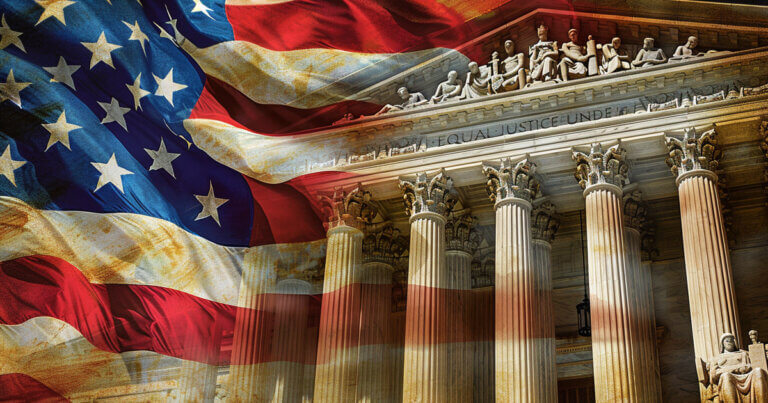 Supreme Court overturns Chevron, reducing SEC’s ‘unilateral power’ over crypto: expert
Supreme Court overturns Chevron, reducing SEC’s ‘unilateral power’ over crypto: expert Supreme Court overturns Chevron, reducing SEC’s ‘unilateral power’ over crypto: expert
Courts no longer need to defer to an agency when a law is unclear.

Cover art/illustration via CryptoSlate. Image includes combined content which may include AI-generated content.
Economist Timothy Peterson said the US Supreme Court’s decision to overturn Chevron will prevent the SEC from acting as an “automatic subject matter expert” on crypto on June 28.
Chevron doctrine originated in a 1984 case titled Chevron v. Natural Resources Defense Council, which created a test to determine when US federal courts must defer to agency interpretations of laws and statutes.
Impact on SEC authority
According to Peterson, the decision to overturn the Chevron doctrine limits the SEC’s “unilateral interpretive power” against Bitcoin.
Peterson wrote:
“This is the BIGGEST win for Bitcoin. Far more important than any one case or law.”
He asserted that the decision will require courts to scrutinize the SEC’s anti-crypto stance. The change could produce fairer regulations and a more balanced legal landscape, including reducing SEC staff’s ability to define assets as securities.
FOX Business reporter Eleanor Terrett said the end of Chevron doesn’t entirely remove the SEC’s ability to bring enforcement actions but does open the question of whether Congress has granted the SEC authority to regulate crypto as a security.
Terrett said the end of Chevron could impact the SEC’s case against Consensys and its assertion that certain tokens are securities. She noted:
“The SEC’s claim that Consensys is an unregistered broker dealer engaging in the offer and sale of unregistered securities [may have] less weight in the eyes of a judge than [before].
In January, lawyer Paul Clement presented an oral argument in Loper Bright Enterprises vs. Raimondo — a case that led to the overturning of Chevron on June 28.
He called crypto a “concrete example” of gridlock related to Chevron and asserted that Congress has not addressed crypto because agencies can claim authority on such matters. He implicitly referred to the SEC and its chair Gary Gensler, stating:
“There’s an agency head out there that thinks … he’s going to wave his wand and he’s going to say the words “investment contract” are ambiguous, and that’s going to suck all of this into [his] regulatory ambit.
He later stated that someone is “going to litigate whether crypto is an investment contract” alongside other issues, adding that Chevron’s overruling could “move things… in the right direction” when it comes to handling such cases.
Chevron overturned in non-crypto cases
The US Supreme Court overturned Chevron in two cases on June 28 — Relentless Inc. v. Dept. of Commerce and Loper Bright Enterprises v. Raimondo.
The New Civil Liberties Alliance (NCLA), responsible for the first case, said the decision means gaps and ambiguity in statutes no longer grant statutory authority to agencies. The latest decision instead requires Article III courts to address said ambiguities.
In overturning the doctrine, Judge John Roberts said:
“The only way to ‘ensure that the law will not merely change erratically, but will develop in a principled and intelligible fashion,’ is for us to leave Chevron behind.”
The cases are not specifically related to crypto or the SEC. However, the NCLA emphasized the decision’s far-reaching scope, noting that it prevents “every federal agency” from abusing deference and calling it “a pivotal reform whose full impact will be revealed with time.”















































































































